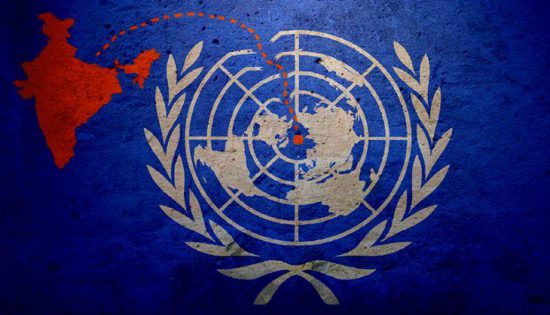Reform Is The Key To Relevance: India’s Permanent Representative to UN Advocates Security Council Expansion

Title: “Reform Is The Key To Relevance”: India’s Permanent Representative to UN Advocates Security Council Expansion
Date: October 8, 2024
Location: United Nations Headquarters, New York
Key Event: India’s Permanent Representative to the United Nations, Ruchira Kamboj, emphasized the need for urgent reforms in the United Nations Security Council (UNSC), calling for its expansion to make it more representative, inclusive, and effective in addressing global challenges.
Main Message: In her address to the General Assembly during discussions on UNSC reform, Ambassador Kamboj argued that the current structure of the Security Council, which was established in 1945, does not reflect the global realities of the 21st century. She reiterated that the UNSC, as it stands, is outdated and risks becoming irrelevant unless reforms are introduced swiftly.
- Key Quotes: “Reform is the key to relevance,” Kamboj said, asserting that the council needs to be more reflective of contemporary geopolitical and economic realities.
- Focus on Inclusivity: Kamboj stressed the need for the inclusion of more countries, particularly from Africa, Asia, and Latin America, in both permanent and non-permanent seats. She pointed out that Africa, with more than 50 nations, lacks permanent representation, and India, as a rising power and one of the world’s largest democracies, continues to be excluded from a permanent seat despite its significant global contributions.
India’s Role: India has long advocated for its inclusion as a permanent member of the Security Council, alongside Brazil, Germany, and Japan—collectively known as the G4 nations. Kamboj highlighted India’s significant contributions to UN peacekeeping missions, its active participation in global discussions on climate change, terrorism, and sustainable development, and its growing economic influence as reasons for its justified claim to a permanent seat.
- Global Call for Reform: Kamboj noted that many countries now see the current structure of the UNSC as unbalanced, favoring the victors of World War II. The expansion, she argued, would ensure the body becomes more representative of a multipolar world, thereby improving its credibility and effectiveness in decision-making.
Support for a Transparent Process: Kamboj also called for a more transparent and inclusive process in selecting new members. She urged the General Assembly to set a definitive timeline for negotiations on reforms, saying, “The time for a wait-and-watch approach has long passed.” According to her, incremental changes are not sufficient to address the growing complexities of global politics, security, and development. A comprehensive overhaul is needed to make the UNSC fit for purpose in today’s world.
Backing From G4 Nations and Beyond: Kamboj’s speech echoed calls from other G4 countries—Brazil, Germany, and Japan—who have also been pushing for UNSC reform. Additionally, African countries under the African Union banner have sought permanent representation, as has the Caribbean and Latin American group of nations.
- Opposition to Status Quo: While the G4 nations and other reform advocates have gathered significant support, there are still hurdles. Permanent members of the Security Council (P5)—the United States, Russia, China, the United Kingdom, and France—hold veto powers and are generally reluctant to support any reform that might dilute their influence.
Conclusion: Kamboj concluded her address by urging global leaders to make UNSC reform a priority during the ongoing UN General Assembly sessions, warning that failure to act could erode the UN’s authority and effectiveness in addressing the challenges of the modern world. “We are at a crossroads where the future relevance of the United Nations is at stake. We must act now to reshape the Security Council to meet the needs of today and tomorrow.”